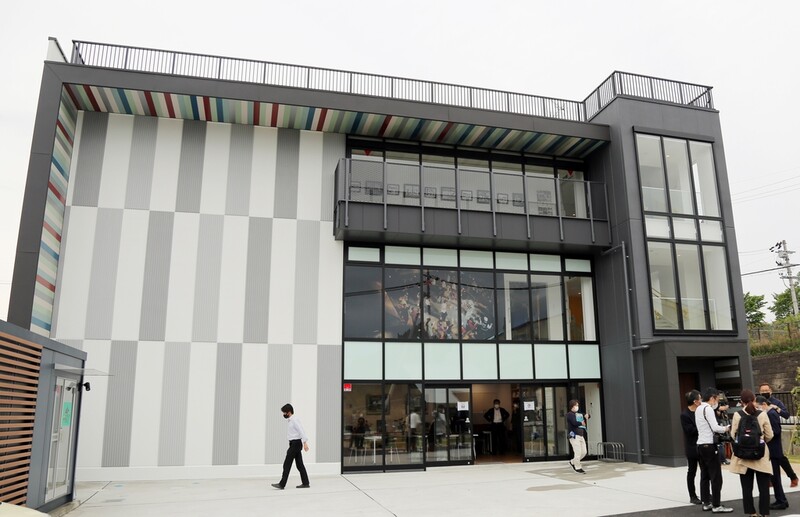 |
| ▲ This photo, shows the Utoro Peace Memorial Hal to inform about the history of the 'Utoro Village' where Koreans lived during the construction of the airfield during the Japanese colonial period. (Yonhap) |
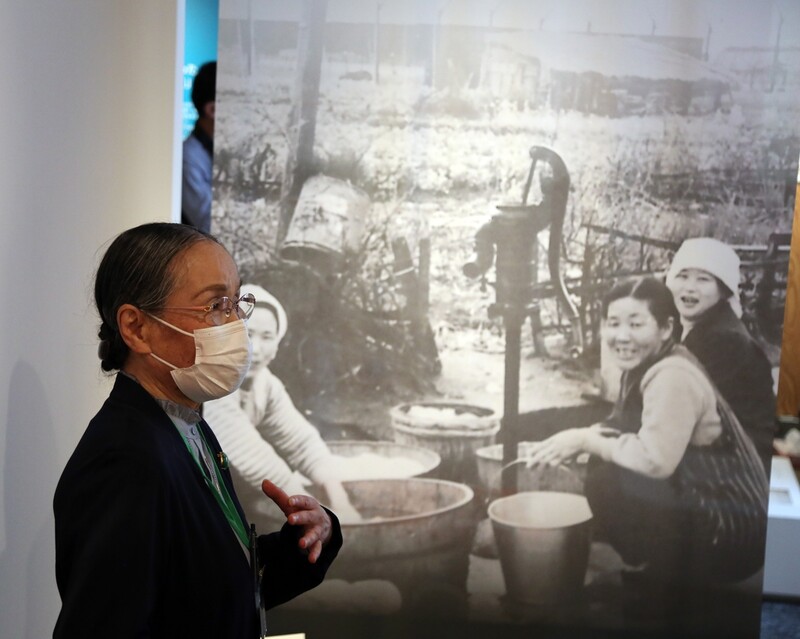 |
| ▲ This photo, shows Akiko Tagawa explaining about the picture where the ladies are difficultly doing laundry as there was no waterwork construction at that time. (PHOTO NOT FOR SALE) (Yonhap) |
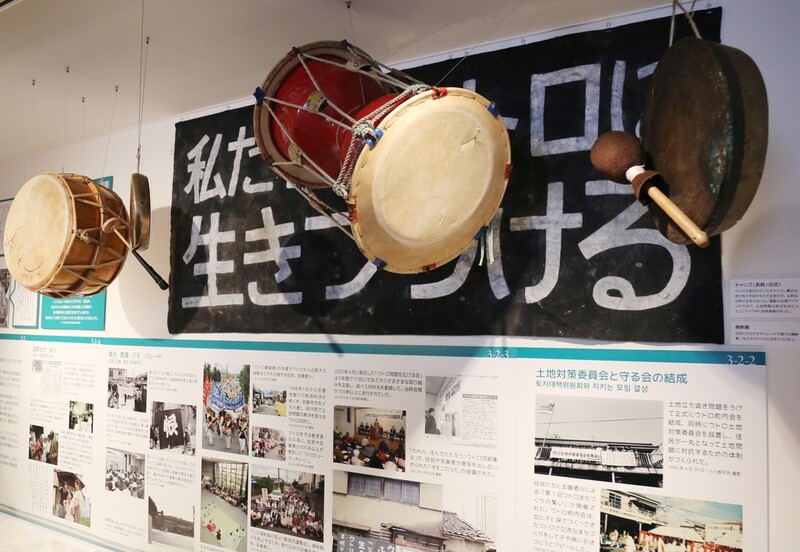 |
| ▲ This photo, shows the Korean traditional instruments in the museum. (Yonhap) |
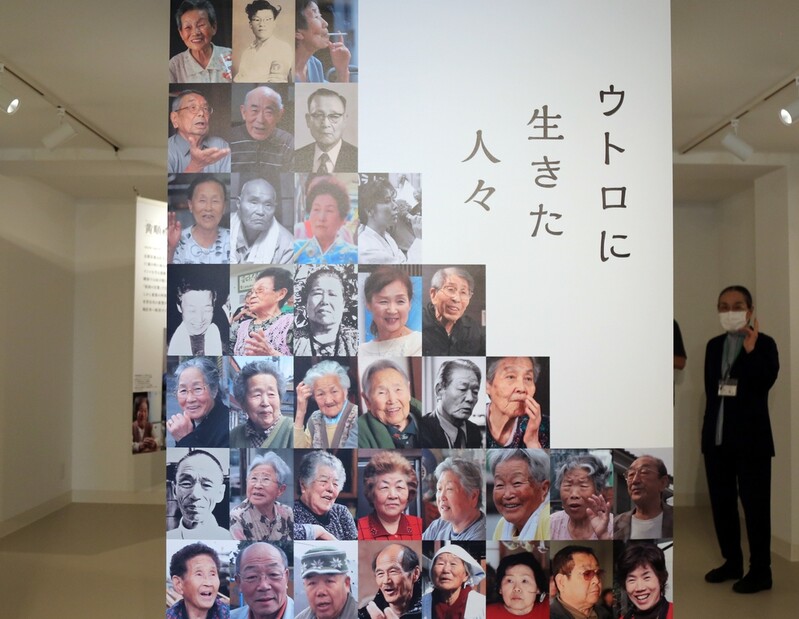 |
| ▲ This photo, shows a section in the Utoro Peace Memorial Hall where the there is the pictures of the people who lived in the Utoro village. (Yonhap) |
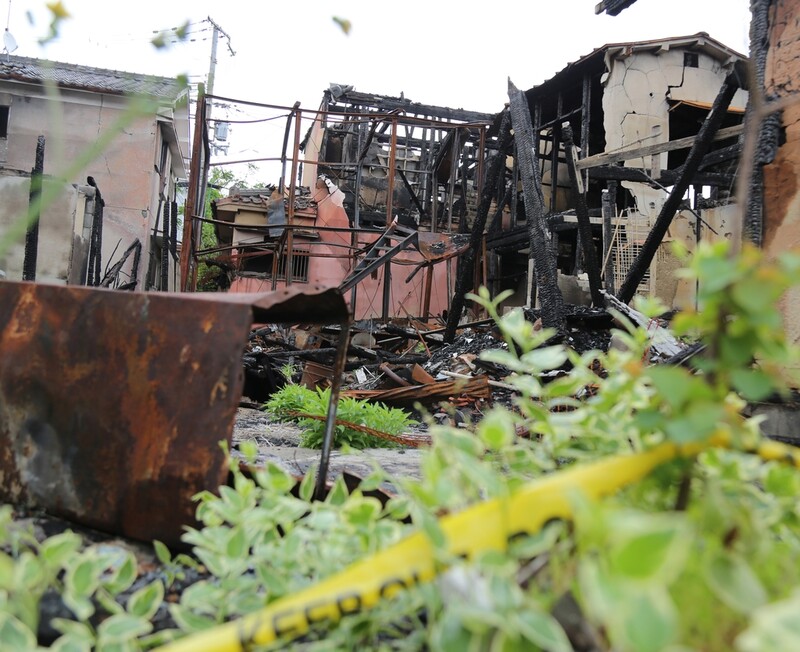 |
| ▲ This photo, shows the Utoro building burnt down. (Yonhap) |
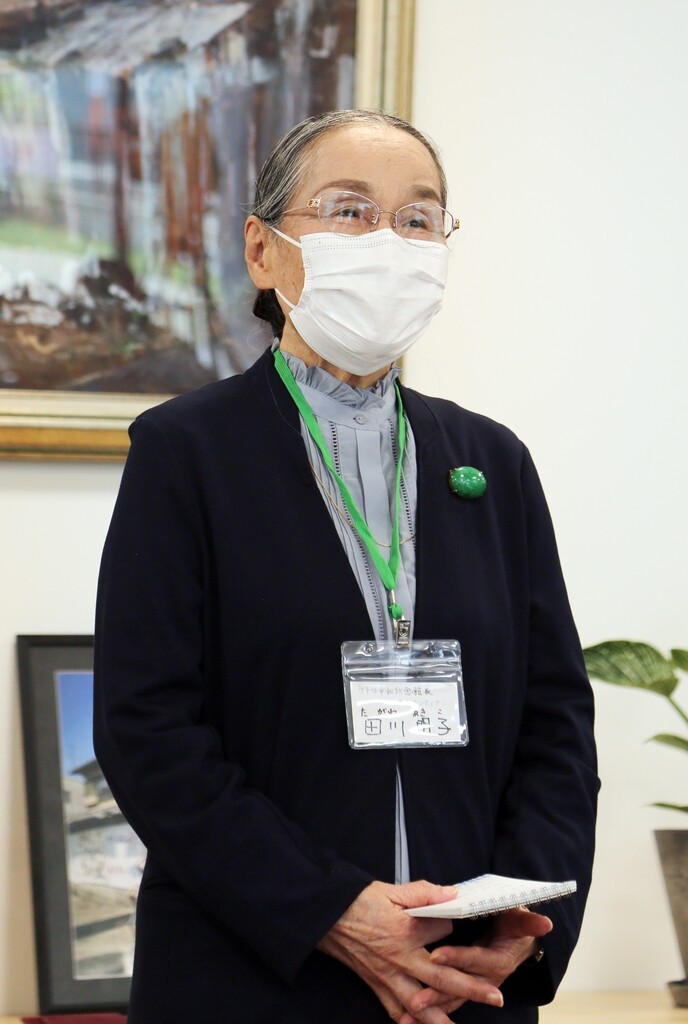 |
| ▲ This photo, shows Akiko Tagawa,the director of the Utoro Peace Memorial hall explaining about the opening ceremony on the 27th. (Yonhap) |
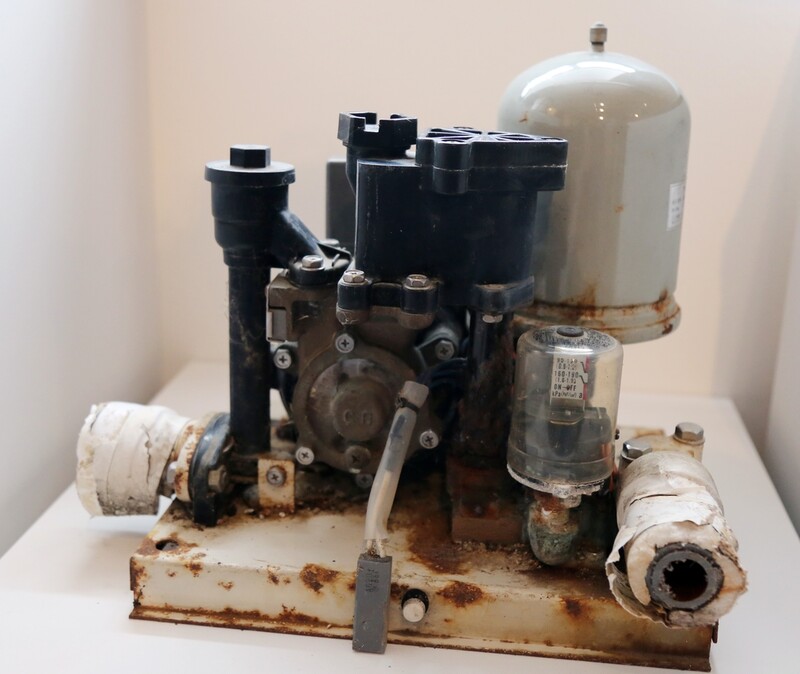 |
| ▲ This photo, shows the water pump that the people in Utoro village used till the late 1980s. (Yonhap) |
SEOUL, Apr. 29 (Yonhap) -- The Utoro Peace Memorial Hall is opening to inform the history of the "Utoro Village," where the Korean laborers involved in the construction of the Kyoto airfield during the Japanese Colonial Period and their family lived, forming a community.
The incorporated foundation, Utoro general foundation, is opening the three-story memorial hall, Utoro Peace Memorial Hall with a total floor area of about 461 square meters on the 30th in 51 Utoro, Iseda-Cho, Uji City, Kyoto, the address of the Utoro village.
Ahead of the official opening, on the 27th, there was a chance to look inside the museum.
The exhibits are composed of contents that allow visitors to understand the reason behind the formation of the Utoro Village during the Japanese colonial period, and the lifestyle of the Koreans who lived there.
For instance, the motor pumps and the hand pumps used by the residents are exhibited in order to realistically show the poor infrastructure. In fact, the waterwork construction in the village began only in 1988.
Along with the Treaty of San Francisco (stipulated that Japan should recognize the independence of Korea, and that Japan should renounce all rights, titles and claims to Korea, including the islands of Quelpart, Port Hamilton and Dagelet), it also introduced the records of the Koreans who fought against the discrimination of the Japanese, like not being able to get a Japanese passport, with different methods including refusing to have their fingerprints stamped.
The copy of the complaint served by the resident who has been sued for eviction shows how high the wall of justice would have been for the Koreans who did not know any real estate contracts or law in general.
Photos of the Korean residents who were in danger of having their house demolished and trying to seek help to protect their right of housing is also displayed.
The efforts to maintain their identity as a Korean is also portrayed by exhibiting samulnori (genre of percussion music that originated in Korea) including Kkwaenggwari (genre of percussion music that originated in Korea), janggu (korean traditional drum) and the records regarding the establishment of the Joseon School .
In order to commemorate the opening, the foundation has also put a special exhibition of the first Korean residents living in Utoro including the words they left behind.
Additionally, the foundation has also moved and installed a part of the Korean shack houses called "Hanba (Hamba)," which was established around 1943, in the front yard of the memorial hall.
The shack houses were where the Koreans in Japan actually lived until the mid-1980s, but in the process of moving it, it was conveyed from an foundation official that the shack houses were too clean unlike the reality.
The construction of the memorial hall costs about 200 million yen (about 2 billion won).
Although most of it was funded by the Korean government, many citizens of both Korea and Japan participated for the funding of the operation for the memorial. Over 60 people have registered as volunteers.
According to the foundation, there was also an incident of an elderly woman who was not familiar with information technology (IT) coming to visit with 1 million yen in cash (about 10 million won) as the funding was done through crowdfunding.
Considering the fact that Utoro Village was on the brink of extinction following the Supreme Court's ruling in 2000, the construction of apartments for residents and opening the memorial hall with the help of both Koreans and Japanese is meaningful to remember the history of the Koreans who lived in Japan during the Japanese colonial period.
"There was a period when protecting Utoro seemed really hopeless," said Akiko Tagawa, the director of the Utoro Peace Memorial Hall. "However, despite that, people in Utoro said, 'There is no way that people's lives can be so easily despised. There is no way that people's lives can just be treated like that.'"
She also conveyed that the Koreans living in Utoro said, "Though the Koreans in Utoro did suffer severe discrimination, there was a little happiness among each other and that was why the Utoro village was made. It'd be meaningful to leave the trace of Utoro village somewhere."
However, there was also an incident that left many feeling sad as some of the historical materials that were kept for the exhibition, like the signboard of Sewoom, were lost due to the fire in August last year.
"It would have been nice if the real things that I have actually used were there, but when I went to see it in advance, I felt a bit sad that there wasn't a lot," said Jung Woo-kyung, a 2nd generation Korean living in Utoro village, Japan. "I wish many people would come and see it."
The foundation will be holding an opening ceremony at 11 a.m. on the 30th and will be open to the general public at 1 p.m. on the same day.
The memorial hall will be open to the general public on Mondays, Fridays, Saturdays, and Sundays while on Tuesdays, it will be only available for group visitors.
(This article is translated from Korean to English by Haemin Kim.)
(END)
(C) Yonhap News Agency. All Rights Reserved






















![[박스오피스] '만약에 우리' 200만 돌파…3주째 주말 1위](https://korean-vibe.com/news/data/20260126/yna1065624915992608_675.jpg)
